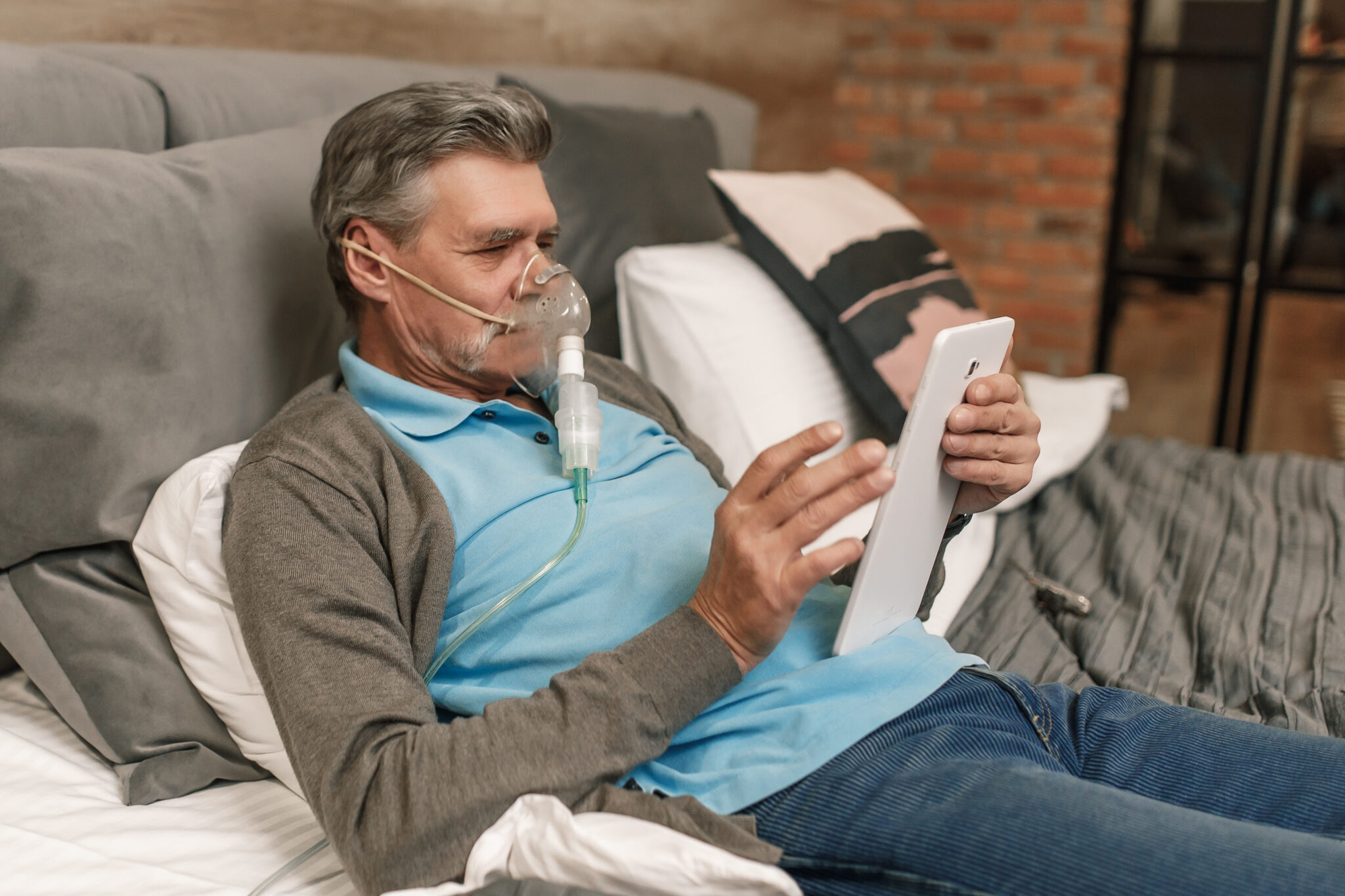In Comment Letter to CMS on Proposed Competitive Bidding Program Rule, Supplemental Oxygen Leaders Emphasize Importance of Patient-Centered and Market-Based Medicare Policies to Ensure Continued Access to Quality Patient Care

Supplemental oxygen advocates call on Congress to advance the bipartisan Supplemental Oxygen Access Reform (SOAR) Act (S. 1406/H.R. 2902) to permanently remove oxygen from any future rounds of competitive bidding
WASHINGTON –– The Council for Quality Respiratory Care (CQRC) submitted comments on August 29 to Centers for Medicare & Medicaid Services’ (CMS) Administrator Mehmet Oz expressing concern and offering recommendations to the agency’s plans to reinstate a Competitive Bidding Program (CBP) for Medicare services, possibly including supplemental oxygen, in the CY 2026 Home Health Prospective Payment System, including Durable Medical Equipment, Prosthetics, Orthotics, and Supplies (DMEPOS) Competitive Bidding Program Updates, DMEPOS Accreditation Requirements, and Provider Enrollment Updates.
In the letter, the CQRC, a coalition of the nation’s top supplemental oxygen suppliers and manufacturers that provide in-home patient services and respiratory equipment to Medicare beneficiaries, stresses its commitment to supporting CMS in enhancing fraud prevention and program integrity, while also underscoring the importance of ensuring that upcoming competitive bidding rounds do not threaten patient access to care.
Specifically, CQRC is concerned the proposed and untested 75th percentile methodology, when coupled with other changes to the bidding process, goes too far and will not achieve a balanced result of ensuring beneficiary access to quality DME products at sustainable cost, stating “we ask that CMS not finalize the proposed 75th percentile methodology with the other provisions of the Proposed Rule and instead work with stakeholders to identify and test the options with more current and realistic data to achieve an optimum result.”
CQRC supports many CBP modifications by the Trump Administration, including streamlining evaluation and notification, codifying CMS’s treatment of surety bonds, recognizing Tribal and IHS suppliers to ensure AI/AN access, and allowing contract modifications or terminations during Public Health Emergencies. However, research from past competitive bidding rounds indicates that supplemental oxygen rates dropped by nearly 50% under CBP previously, and that additional bidding rounds will not yield further savings but rather will exacerbate access problems and increase unnecessary costs. In fact, claims data from CMS show a 126 percent reduction in claims for portable liquid oxygen and a 136 percent reduction in claims for stationary liquid oxygen from 2017 to 2025, suggesting a significant shift in patient access to clinically necessary supplemental oxygen.
According to CQRC, well-documented problems with patient access are another indicator that bidding supplemental oxygen in future rounds is unlikely to result in Medicare savings, writing, “Trying to squeeze out additional savings from supplemental oxygen at this would be a pyrrhic victory for CMS. Clinical literature shows that supplemental oxygen reduces overall Medicare spending by reducing emergency room visits, hospitalizations, and other costly services. If CMS were to further push down the reimbursement rates for supplemental oxygen, the access issues beneficiaries have already experienced would likely increase. As a result, CMS would end up spending more money on treating these patients in more expensive settings and for additional entirely preventable complications.”
CQRC’s submitted comments urge CMS not to finalize the competitive bidding methodology due to unforeseen risks of replicating patient access issues from prior rounds and the imposition of unnecessary costs, which may impede patient access to supplemental oxygen care. The comments emphasize a desire to work with the Administration to find a balanced approach to establish market-based prices for DMEPOS suppliers while protecting beneficiary access to medical devices and services.
The CQRC also supports efforts to reduce fraud and abuse. It recommends that CMS take a targeted approach by leveraging technological advances and mandating its own clinical data element template for supplemental oxygen to eliminate potential fraud. The CQRC also urged CMS to retain the current financial documentation requirements rather than relying on limited credit reports to protect against entities, especially unscrupulous international-based entities, from defrauding the government.
The CQRC continues to champion legislative solutions that protect patients using supplemental oxygen from future rounds of competitive bidding, including the Supplemental Oxygen Access Reform (SOAR) Act (H.R. 2902/S. 1406). This bill would remove supplemental oxygen from upcoming CBP rounds and provide patient-centered protections to ensure beneficiaries receive their prescribed therapies. Additionally, the SOAR Act would establish a new, cost-based reimbursement rate for liquid oxygen, improving access to liquid oxygen and ensuring patients relying on this modality can access the care they need. The SOAR Act is supported by a broad set of stakeholders including leading patient, provider and professional organizations.
Patient advocacy organizations have likewise expressed significant concerns with CMS’ competitive bidding proposal, stating in a letter, “we are deeply troubled that CMS is proposing to adopt an untested policy that could easily result in patients losing access to life-sustaining equipment, like medical oxygen equipment and other respiratory devices. An alternative rate-setting methodology that protects access while managing risk can be found with a more collaborative approach that does not threaten the health of beneficiaries.”
####
The Council for Quality Respiratory Care (CQRC) is a coalition of the nation’s leading home oxygen therapy provider and manufacturing companies providing in-home patient services and respiratory equipment including liquid oxygen, oxygen concentrators, and sleep therapy devices to Medicare beneficiaries who rely upon home oxygen therapy to maintain their independence and enhance their quality of life. Learn more at cqrc.org.
Media Contact:
Ellen Almond
202-271-0234
